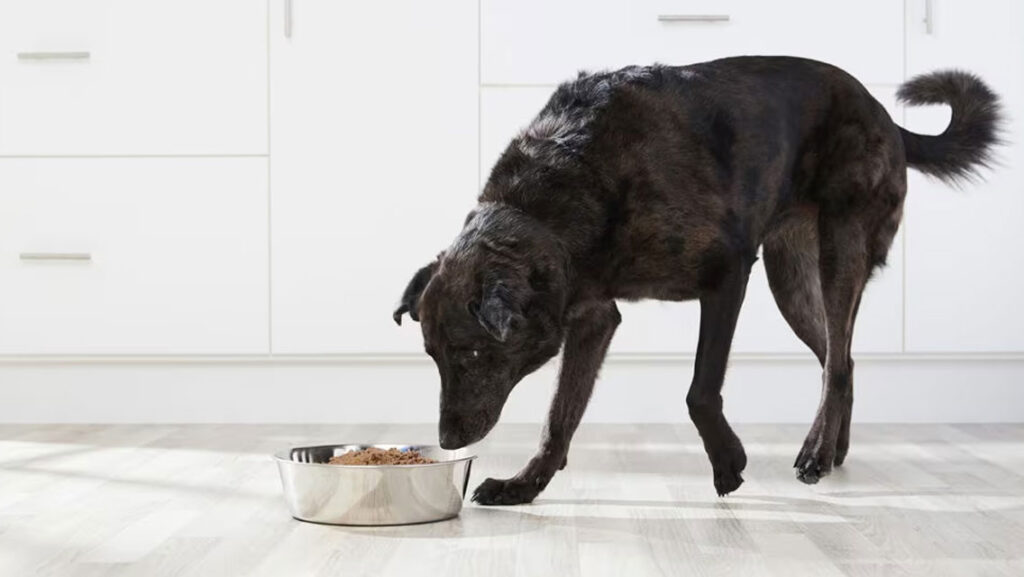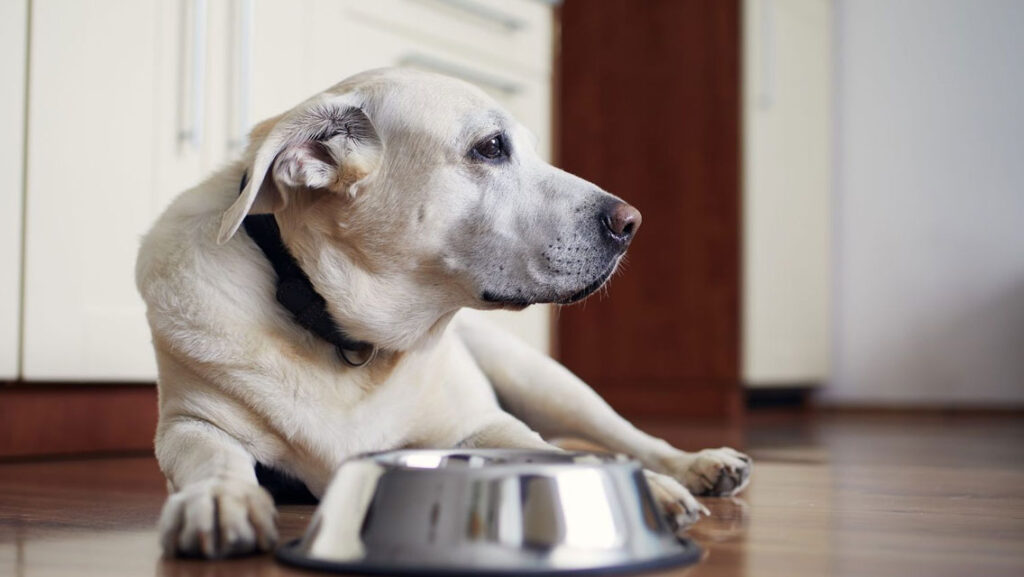To meet the nutritional needs of aging pets, special diets for senior dogs should include higher levels of protein to replace wasting muscle mass. It is important to choose a dog food rich in meat-based protein to support the health of older dogs without straining their kidneys.
Additionally, senior dog foods often contain higher quality protein sources, such as meat and fish, which are easier to digest. These diets are formulated to provide aging canines with the necessary nutrients and help prevent obesity in seniors. We will explore the importance of special diets for senior dogs and how they can contribute to the overall health and well-being of aging pets.
Importance Of Proper Nutrition For Senior Dogs
Ageing dogs require special diets for optimal health and well-being. Meeting the nutritional needs of senior dogs can help prevent and manage age-related health issues. An older dog needs more protein in her diet than a younger dog. That’s because seniors need to replace wasting muscle mass as they age. A dog food rich in meat-based protein will not strain a healthy, older dog’s kidneys.
It’s important to provide your dog with enough protein, as his body may become less effective at synthesizing protein with age. This is why senior dog foods often contain higher quality protein sources. Meat and fish tend to be the easiest sources to digest.
Senior dog diets are formulated with appropriate nutrient limits and are less calorie-dense than rations for puppies and adult dogs. These diets often have lower-calorie content to help prevent obesity, a common issue in seniors.
When considering the best diet for old dogs, it is recommended to consult with a veterinarian. They can provide specific guidance based on your dog’s individual needs and health condition.
Understanding The Changing Dietary Requirements Of Senior Dogs
As dogs age, their dietary requirements undergo significant changes. One key change is the increased need for protein in their diet. Just like humans, senior dogs require more protein to replace and maintain muscle mass. It’s important to choose high-quality sources of protein in their food to support their overall health.
Meat and fish are often the easiest sources for senior dogs to digest, although some newer foods now include insect protein as well. Including senior dog foods that contain higher quality protein sources can ensure that your aging pet receives the necessary nutrients to maintain optimal health.
Key Nutrients For Senior Dogs And How To Incorporate Them
An older dog needs more protein in her diet than a younger dog. That’s because seniors need to replace wasting muscle mass as they age. A dog food rich in meat-based protein will not strain a healthy, older dog’s kidneys.
It’s important to provide your dog with enough protein, as their body may become less effective at synthesizing protein with age. This is why senior dog foods often contain higher quality protein sources. Meat and fish tend to be the easiest sources to digest, although some newer foods use insect protein. Senior dog foods often contain higher quality protein sources.
Additionally, senior dogs have special nutritional needs, as they require lower-calorie diets to prevent obesity, which is a common issue in seniors. Best dog food for senior dogs should meet these requirements.
You can also add supplements to support organ health in senior dogs. These supplements can help improve their overall well-being and maintain their organ functions. It’s always recommended to consult with a veterinarian before adding any supplements to your pet’s diet.

Common Health Issues In Senior Dogs And How Nutrition Can Help
As dogs age, they are prone to developing various health issues. Providing proper nutrition can play a crucial role in managing and preventing common age-related health problems. Senior dogs with health issues have special nutritional needs that should be addressed to support their overall well-being.
Proper nutrition can help manage and prevent a range of age-related health issues in senior dogs. Senior dogs with specific health conditions, such as arthritis, dental problems, or kidney disease, may require specialized diets to alleviate symptoms and promote healing.
Feeding recommendations for senior dogs with specific health conditions may include adjusting their diets to meet their unique nutritional requirements. For example, senior dogs with dental problems may benefit from soft or wet food options, while dogs with kidney disease may require lower protein diets to reduce stress on their kidneys.
Consulting with a veterinarian is essential to determine the most appropriate diet plan for senior dogs with health issues. They can provide expert advice on the right balance of nutrients and recommend specific commercial dog foods or homemade recipes that cater to their specific needs.
Choosing The Right Senior Dog Food
An older dog needs more protein in her diet than a younger dog. That’s because seniors need to replace wasting muscle mass as they age. A dog food rich in meat-based protein will not strain a healthy older dog’s kidneys. It’s important to provide your dog with enough protein, as their body may become less effective at synthesizing protein with age.
This is why senior dog foods often contain higher quality protein sources. Meat and fish tend to be the easiest sources to digest, although some newer foods use insect protein. When selecting a senior dog food, it’s vital to read and understand the dog food labels, considering factors such as the protein content, sources, and quality.
Recommended senior dog food brands and products include Purina Pro Plan Senior Gravy, Purina Moist Meaty Steak Flavor Dog Food, Blue Buffalo Homestyle Recipe, and Royal Canin Canine Health Nutrition. It’s crucial to choose the right senior dog food to meet the nutritional needs of your aging pet and ensure their overall well-being.
Homemade Diets Vs. Commercial Senior Dog Foods
For senior dogs, there are two main options when it comes to their diet: homemade diets and commercial senior dog foods. Homemade diets allow pet owners to have greater control over the ingredients and tailor the food to their dog’s specific needs.
However, they require careful planning to ensure that the dog receives all necessary nutrients. On the other hand, commercial senior dog foods are convenient and formulated to meet the nutritional needs of aging pets. They are often rich in meat-based protein, which is important for maintaining muscle mass in senior dogs.
Transitioning a senior dog to a new diet should be done gradually to avoid digestive issues. Overall, both options have their pros and cons, and it’s important to consult with a veterinarian to determine the best diet for your senior dog.

Tips For Feeding Senior Dogs
Feeding guidelines and portion control are crucial when it comes to meeting the nutritional needs of senior dogs. As dogs age, their dietary requirements change, and it’s important to provide them with the right balance of nutrients. Senior dogs need more protein in their diet to replace wasting muscle mass. Choosing a dog food rich in meat-based protein will not strain their kidneys.
Senior dog foods often contain higher quality protein sources, such as meat and fish, that are easier to digest. Additionally, meal frequency and timing play a role in senior dog nutrition. It’s recommended to feed older dogs smaller, more frequent meals rather than one large meal.
This helps with digestion and prevents overeating. Some tricks for encouraging appetite in senior dogs include warming up their food and adding moisture-rich toppers. These can make the food more appealing and easier to consume for aging pets.
Frequently Asked Questions For Special Diets For Senior Dogs: Meeting The Nutritional Needs Of Aging Pets
What Is The Best Diet For Old Dogs?
Older dogs need a diet rich in meat-based protein to support muscle mass. Senior dog foods often contain higher quality protein sources like meat and fish, which are easier to digest. Providing enough protein is important as their bodies become less effective at synthesizing protein with age.
What Is The Best Diet For Senior Dogs?
An older dog needs more protein in her diet than a younger dog. That’s because seniors need to replace wasting muscle mass as they age. A dog food rich in meat-based protein will not strain a healthy, older dog’s kidneys.
Do Senior Dogs Have Special Nutritional Needs?
Yes, seniors and geriatrics generally need lower-calorie diets to help prevent obesity – a huge problem in seniors. They also require higher quality protein sources to maintain muscle mass. Senior dog foods are formulated to meet these nutritional needs.
How Do A Dog’S Dietary Requirements Change With Age?
As a dog ages, its body becomes less effective at synthesizing protein. It’s important to provide your dog with enough protein through easily digestible sources such as meat and fish. Some newer foods even use insect protein to meet these changing dietary requirements.
Conclusion
As our furry friends age, it becomes crucial to meet their nutritional needs through special diets. Older dogs require a higher protein intake to maintain muscle mass. Opting for a meat-based protein in their dog food will not strain their kidneys.
Additionally, senior dog foods often consist of higher quality protein sources, such as meat and fish, which are easier to digest. Providing your aging pet with the right nutrients will contribute to their overall health and well-being.


